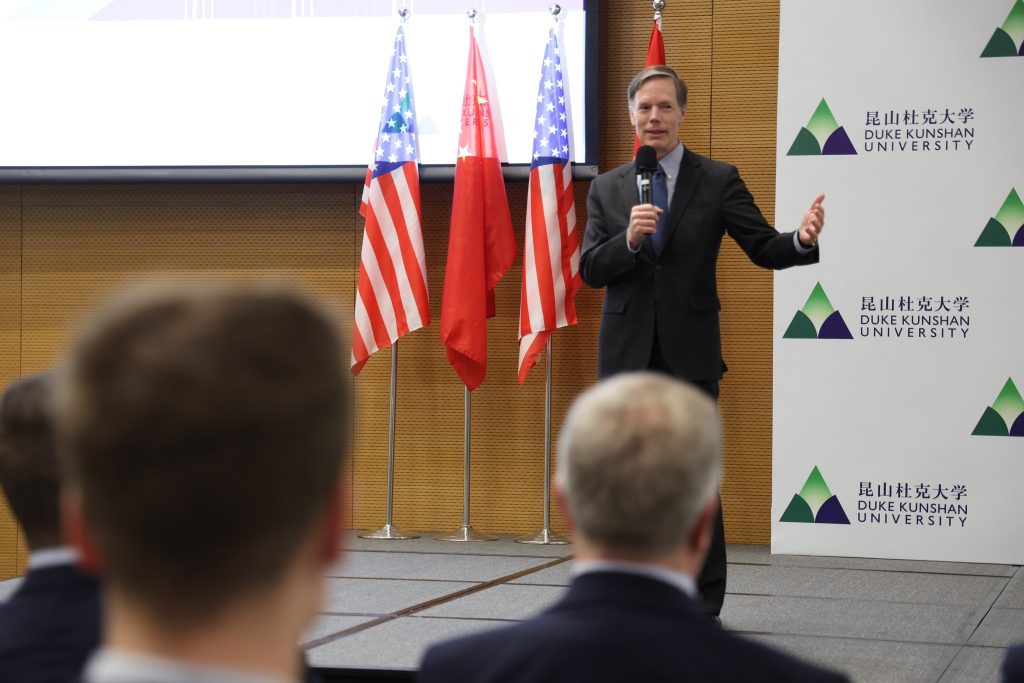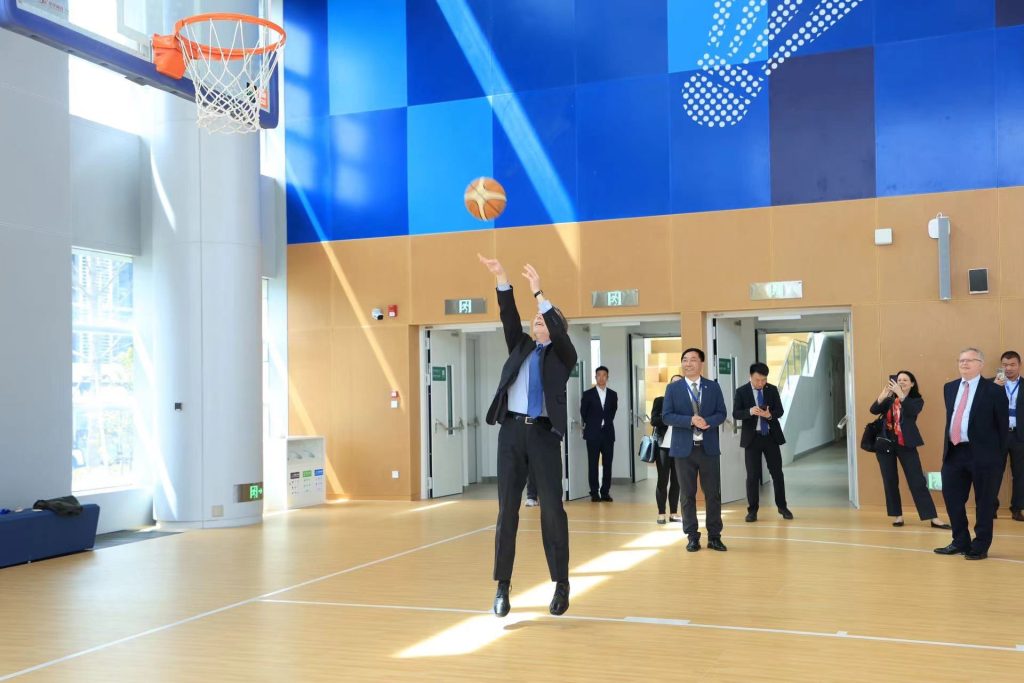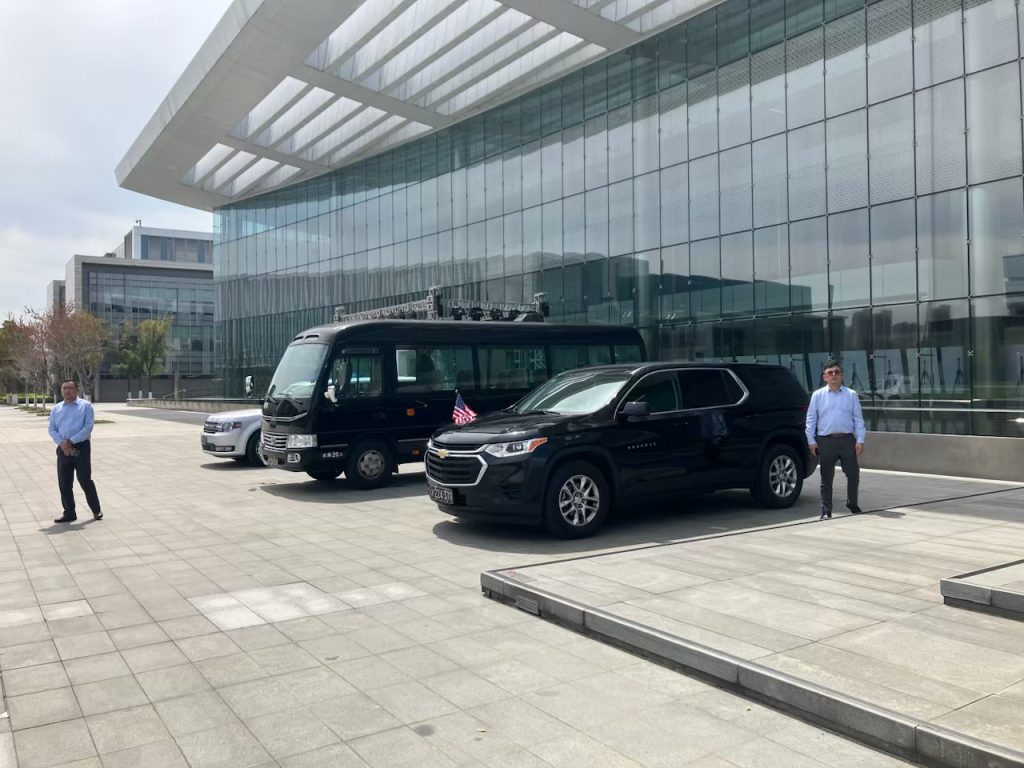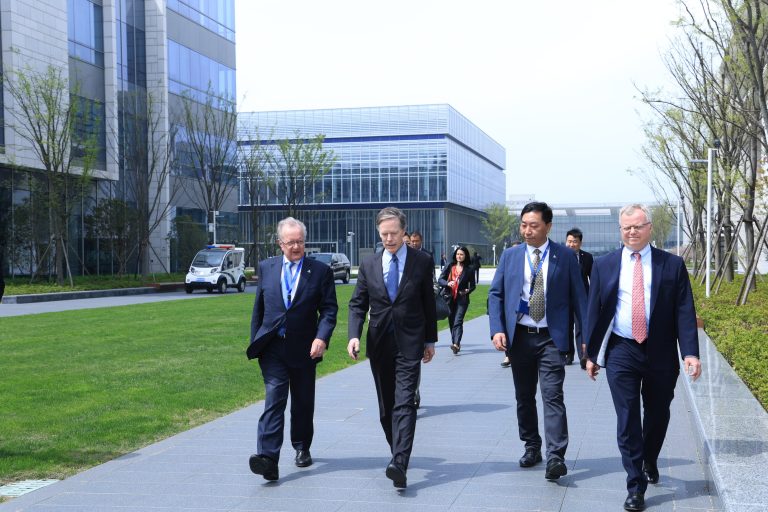KUNSHAN, JIANGSU PROVINCE, CHINA—
DKU hosted US Ambassador to China Nicholas Burns at the end of last month, March 30, representing the highest profile event at the university since the opening of the Phase 2 campus last summer.
Visiting on a Saturday morning, Ambassador Burns was accompanied by the US Consular General to Shanghai, Scott Walker, and other representatives from the US mission to China.
Burns was received in the Academic Building auditorium where he gave a speech followed by a Q&A session.

Following three main points, the speech began with the history of the Sino-US relationship, moved onto challenges and divergences in contemporary relations, before closing with optimism and opportunities for the future of the relationship.
A Call for Staying Together
Burns began the speech stating a need for the United States and China to “stay together” through the challenging relationship that exists today.
Citing a complex governmental relationship of strategic rivalry, the ambassador looked to history to highlight the precedent for cooperation between the two countries.
The ambassador referred to American educational figures and missionary missions which established the early relationship and US support of China during the Second World War as evidence of a long history of American cooperation with and support for China.
Moving to the modern relationship, Burns called for a furthering of educational cooperation between both countries and for American students to study in mainland China.
According to the US Mission to China, only 880 American students are reported to have been studying in the mainland since the start of 2024, Burns stated. This small number is up from a recent low of 211 during the 2021-22 school year.
However, during the 2022-23 school year, 289,526 Chinese studied in the US according to the Institute of International Education (IIE).
Calling for American and Chinese students to “understand one another,” the US representative expressed concern with the low number of American students in the mainland for the upkeep of peace between China and the US.
Burns pointed towards Chinese leader Xi Jinping’s announced goal of 50,000 American students to study in China over the next five years at the APEC Summit in San Francisco last Nov. as a positive step by the Chinese side towards addressing this concern.

Alongside providing live updates of the score of a Duke basketball game transpiring during the course of the speech, Burns called for higher educational institutions such as Duke and its China counterpart, DKU, to carry the torch in fostering a place for Americans to study in and understand China.
Regional Importance & Pacific Strategy
Beyond the Sino-US relationship, the representative referred to an overall American pacific strategy signaling an increased American focus on the region.
Beginning with the “strategic situation” in the Pacific, Burns addressed the US’s Five Treaty Partners, the Trilateral Security Partnership between Australia, New Zealand and the US known as AUKUS, and the Quadrilateral Security Dialogue known as the QUAD.
Although China remains third in ranking on the list of largest US trading partners, Burns cited the “tech talk” being a centerpiece of the Sino-US relationship.
Relational Differences & Economics
Ambassador Burns took a harder tone during his second point which concerned relational differences, challenges and competition.
On the economic front, the representative called for a “level playing field” to be established between both sides. Intellectual property theft, forced technology transfer and the position of US companies in China were some of the issues addressed by Burns.
Beyond economics, human rights differences were cited as a key challenge in bilateral ties.
Optimism in Areas of Mutual Cooperation
Climate change —ardently promoted by the Biden Administration as an area of necessary engagement— was first on Burns’ list of proposed arenas of cooperation.

Combatting fentanyl trafficking into the US was also asserted as an area of promising recent engagement by Burns. The ambassador stated Chinese drug enforcement counterparts have been cooperating with the US towards the halting of the illicit sale of fentanyl precursor chemicals to illegal drug manufacturers abroad.
Finally, Burns cited future pandemic cooperation as a key area of cooperation. Citing five pandemics which have taken place since the early 2000s, the ambassador also pointed towards cooperation between the US Center for Disease Control (CDC) and Chinese Center for Disease Control (CCDC).
The ambassador’s trip follow’s DKU’s participation in a March educational exchange program hosted by the Chinese government in Shanghai, titled “Zhixing China: Shanghai Discovery” (体验上海:执行中国) which you can read about here.

